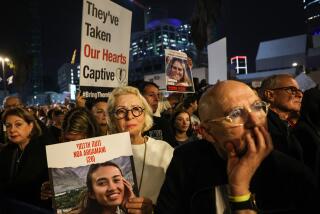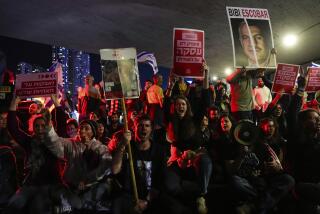With a blockade deadline looming, families in Qatar face a tough choice: Stay or go?
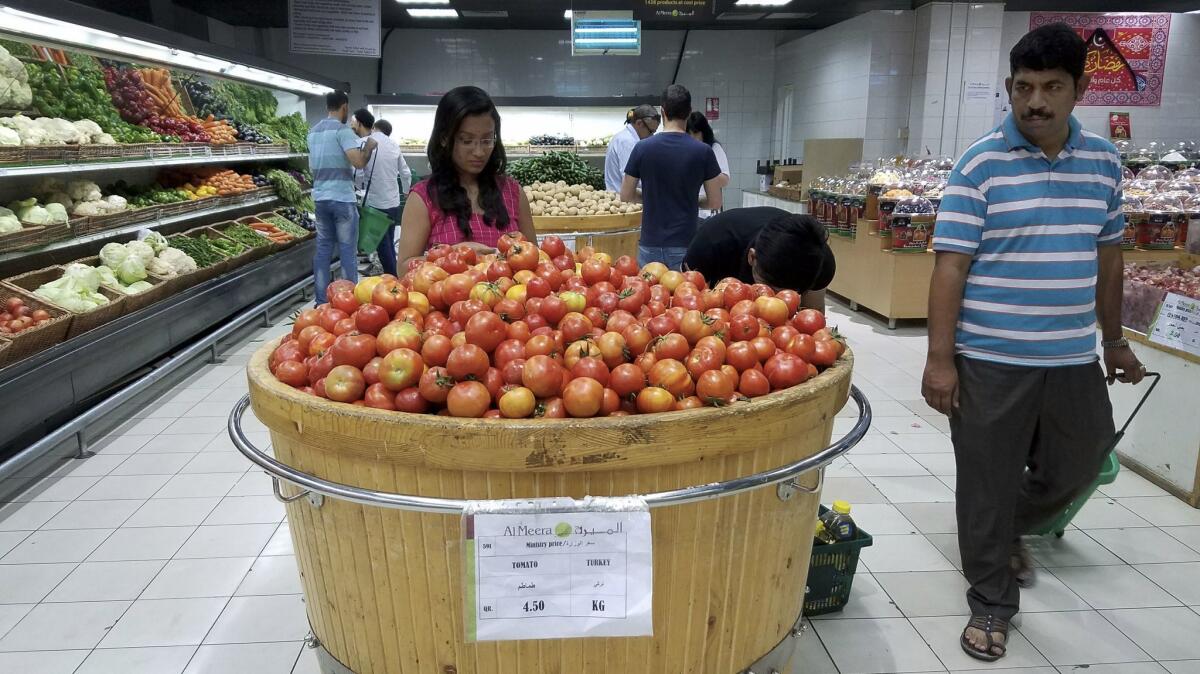
Wafa Yazeedi, a doctor and single mother who runs a hospital in this tiny Persian Gulf nation, has found herself in the middle of a sudden political crisis that has engulfed parts of the Arab world — and threatened to break up her family.
A blockade of Qatar that took full effect this weekend technically requires all three of Yazeedi’s children to leave the country immediately for nearby Bahrain, the country whose citizenship they hold — though Yazeedi has been divorced from her Bahraini husband since 1999, and her children grew up with her in Qatar.
“How will they get an education? And will I be able to visit them?” Yazeedi said between meetings at her office Monday. “My children, they are all at risk now.”
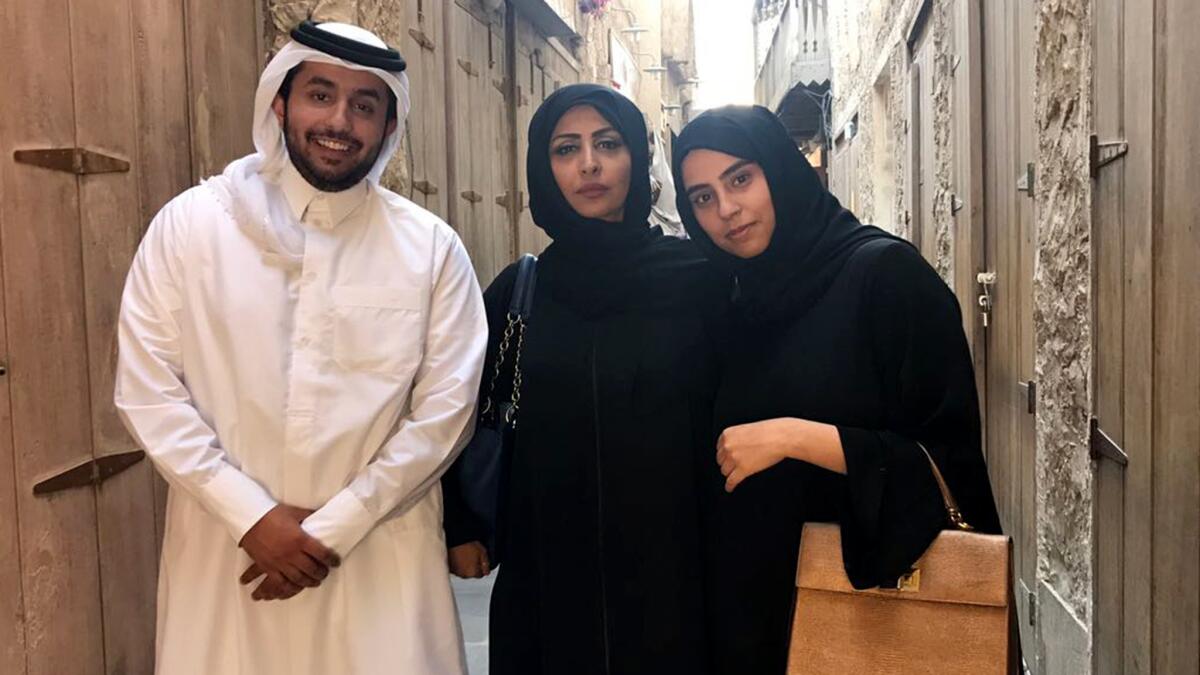
In the wake of the blockade announced by several neighboring Arab countries this month — ostensibly to force Qatar to break its connections with Iran and extremist Muslim organizations — thousands of families with mixed citizenship are having to make similar dire decisions: Stay, or go?
Bahrain, Saudi Arabia and the United Arab Emirates have ordered their citizens to return home. Egypt recalled its diplomats. Qatari citizens were blocked from traveling to participating countries, and those already there were directed to return home.
Already, there is widespread alarm over just how devastating the consequences of the political standoff could be in this tight-knit cluster of desert emirates whose connections have always been deep.
More than 13,000 people are affected by the blockade, including at least 6,500 mixed-status families, according to Qatar’s National Human Rights Committee.
A Saudi man said he was unable to claim the body of his father who died in Qatar two days after the blockade began — but that was only one of hundreds of complaints.
“This arbitrary deadline has caused widespread uncertainty and dread among thousands of people who fear they will be separated from their loved ones,” James Lynch, deputy director of Amnesty International’s global issues program, said in a statement Monday.
Crucial family decisions were being made days before the Muslim holy month of Ramadan concludes with the Eid holiday June 25, a time when families traditionally reunite.
Arabs from the blockade countries who stay in Qatar risk losing their passports, citizenship and ability to visit family again. Qataris who stay in the four countries abroad risk losing their freedom if convicted of sympathizing with Qatar, which has now become a crime in those countries.
The four countries implementing the blockade say it is aimed at halting Qatar’s aid and funding for “terrorist” organizations such as the radical Palestinian group Hamas and the Muslim Brotherhood. The countries severed diplomatic ties, plus land, air and sea connections.
Qatari officials have insisted the country has been working to combat terrorism through its connections and condemned the blockade as a violation of its sovereignty. The ruling emir remains popular, and a black-and-white stencil of his face has become a symbol of resistance pinned to shirt fronts and plastered across SUVs and towers in the capital.
“The humanitarian impact of the blockade is real. Saudi, Emirati, and Bahraini families are being forcibly recalled by their governments today, despite being invited to stay by the government of Qatar,” government spokesman Sheik Saif bin Ahmed al Thani said Monday.
“The social fabric of [the region] is being torn apart for political reasons and we will not allow ourselves to be a party to this injustice,” he said.

Citizens of Bahrain, Saudi Arabia and the United Arab Emirates have been told by their countries to leave Qatar after a blockade was imposed two weeks ago.
Qatar has strong military ties to the United States. Al Udeid Air Base in the capital, Doha, is home to 10,000 U.S. troops. Last week, naval forces from both countries conducted joint exercises, and the U.S. recently approved a $12-billion sale of fighter jets to Qatar.
Qatar’s foreign minister, Mohammed bin Abdulrahman al Thani, is scheduled to travel to Washington next week to try to end the blockade. U.S. Secretary of State Rex Tillerson has met with Saudi and United Arab Emirates leaders since imposition of the blockade, launched shortly after President Trump traveled to the Saudi capital and made an appeal for a united Arab front against Iran, which is an ally and trade partner of Qatar.
The foreign minister said Trump called Qatar’s emir days after the blockade commenced to invite all parties to the White House.
“The U.S. is helping us in pressuring the parties to solve this,” the foreign minister said. Still, he said, Qatar is not yet ready to talk with the Arab states involved. “They have to lift the blockade to start negotiations.”
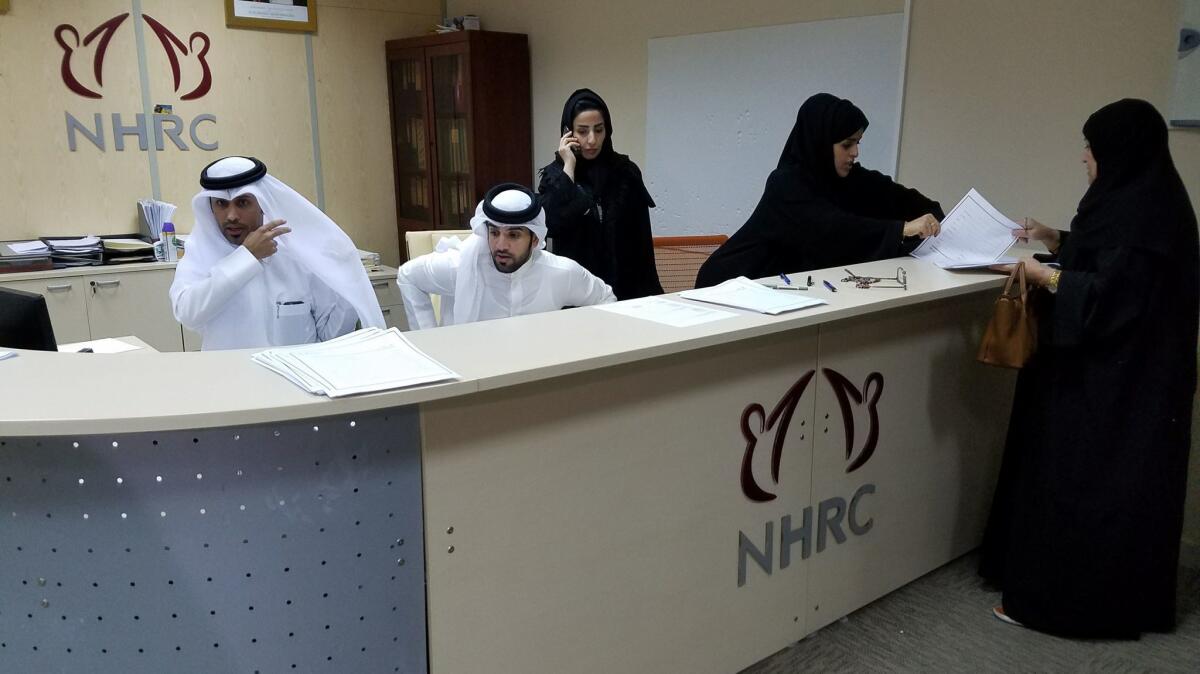
Many of Qatar’s 2.6 million residents initially panicked after the blockade was declared, emptying store shelves of Saudi milk and other goods they worried would soon be in short supply. New foodstuffs were flown in to fill the gap from Algeria, Iran, Morocco, Turkey and other allies, but most of those goods went to large markets in the capital.
Smaller stores in low-income areas are beginning to have bare shelves, and migrant workers from Bangladesh, India and Nepal are having to scavenge.
A man who came looking for yogurt at one such market Sunday found the refrigerator case nearly empty, as were the vegetable bins. Manager Ashraf Thazhekizhakkayil Peedikayil said business is down 30 to 40% since the blockade.
At branches of Al Meera market, a national chain selling state-subsidized goods, shelves were well stocked with what signs said were Turkish eggs “flown in by air,” Iranian sweet melons and Algerian potatoes. Managers posted signs identifying local goods that urged, “Let’s support Qatari products.”
My future is pretty much gone.
— Haya, a Qatari medical student
Store manager Saad Tamim said he already had been importing some fruits weekly from the U.S. Now he has added a truck for daily shipments, including berries and grapes from California.
Though the store is surviving, Tamim, 35, is suffering. His family lives in the United Arab Emirates. He used to commute to Dubai weekly, but since the blockade he has stayed in Doha. He checks the news daily hoping for an improvement, but doesn’t expect to celebrate Eid with his mother.
“Every day I pray for it to finish,” he said.
One couple from Egypt, residents of Qatar for 11 years, said they lost their tickets to Cairo on Qatar Airways to visit relatives for Eid after the blockade closed airspace.
“People from other countries don’t want to leave. We love it. This is our business, this is our life,” said the man, Abu Mohamed, who was using a nickname because he feared repercussions due to the blockade.
A 23-year-old Qatari medical student who asked to be identified by her first name, Haya, left classes in the United Arab Emirates shortly after the blockade was declared, before she could take her final exams and graduate after five years of study.
“My exams started today and I’m still here,” she said this weekend.
Haya said she would not feel safe returning to Abu Dhabi now. “How are you going to assure me I’m going to be fine there?” she said. “My future is pretty much gone.”
A Qatari businessman said he was faced with a requirement to send his wife, who is seven months pregnant, back to her home in Saudi Arabia — leaving their 6-year-old son behind with him.
“The target is the families,” Naif, 38, who declined to give his last name, said of the blockade. He said he ultimately left the decision to stay or leave up to his wife, and she decided to stay, for her job and her family.
Their second son would be born in Qatar.
Even if Arab leaders mend the diplomatic rift, Naif and others said they take the attack on their families personally. Once travel resumes, many said they won’t go back to visiting, shopping or doing business with the blockade countries any time soon.
“What’s broken does not come back like before,” he said. “We don’t trust.”
molly.hennessy-fiske@latimes.com
Twitter: @mollyhf
ALSO:
Arab nations cut ties to Qatar, deepening rift in Persian Gulf
Tiny Qatar refuses to bend on foreign policy despite a blockade by other Persian Gulf nations
Hamas is feeling the pain of Qatar’s crisis, and looking to Egypt for help
More to Read
Start your day right
Sign up for Essential California for news, features and recommendations from the L.A. Times and beyond in your inbox six days a week.
You may occasionally receive promotional content from the Los Angeles Times.


